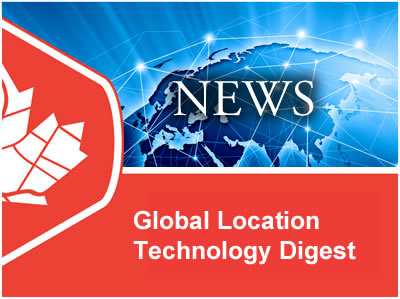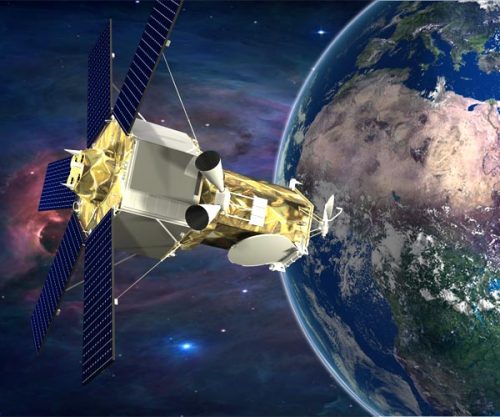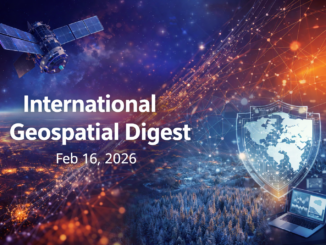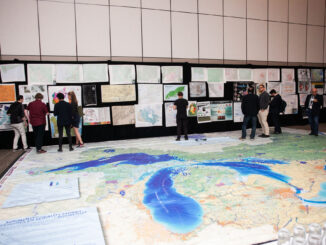
Leverage tech for the public at GeoIgnite
A new article on GeoIgnite 2019 in the Ottawa Business Journal highlights the “Geospatial Foundations” aspect that provided the framework for how the whole conference came together—that is, the ubiquitous nature of geospatial in our modern life. The future depends on geospatial, not only for urban communities gearing up for smart city rejuvenation, but rural communities who rely on advancing location technology to get resources and emergency services. Keith Masback, interviewed for the piece, says it’s a government’s duty to leverage technology for the public good, and GeoIgnite is a forum where decision makers ”can discuss the problems they’re facing so that academic and industry players can offer their existing solutions or, at the very least, head back to the office with a notebook full of ideas.”

Maxar claims insurance on WorldView-4
Maxar Technologies has announced that its insurance carriers are accepting the $183 million claim for the loss of the WorldView-4 satellite. Maxar will be using the proceeds to invest in other capital priorities like the development of the WorldView Legion constellation. The full payout is expected within 30 days.
‘On the shoulders of giants’
AI and deep machine learning are not recent concepts. Deep learning was introduced by the computer scientist Rina Dechter in 1986, and artificial neural networks came on the scene in 2000 thanks to Igor N Aizenberg; GIS was born in the 60’s thanks to the work of Waldo R. Tobler and Roger F. Tomlinson, the “father of GIS”. These pioneers were in turn building on the work of generations of scientists before them. The technological advances of the recent years are thanks to these early foundations laid in AI, deep learning and GIS technologies. As Maged N. Kamel Boulos puts it, “Let’s always remember those before us who have laid the foundations for our present day and future innovations.”
Faclcon 9 to launch; landing might be harder
After being delayed for more than half a year, the Falcon 9 to be launched by SpaceX is finally scheduled to launch by June 11th. The Falcon 9’s logistical troubles began in December 2018, when a hydraulic pump failure forced the rocket to abort its mission and land in the Atlantic Ocean. The subsequent delays were attributed to the B1049 booster being thrown out in place of the Falcon 9 B1051, whose inspection and refurbishment pushed the launch to March 3rd. The Falcon 9 is now at last ready to make a successful trip–despite an unexpected twist, wherein the Falcon 9’s planned landing has been prevented at SpaceX’s West coast landing pad due the harbour seal pupping season.

Is Elon Musk waging a war on LiDAR?
Elon Musk has some strong words for LiDar: “LIDAR is a fool’s errand. Anyone who relies on LIDAR is doomed. Expensive sensors that are unnecessary.” Musk’s brainchild Tesla car is one of the few automated vehicles to use cameras and radar, forgoing LiDAR. The Tesla drives with eight cameras plus several front radar ultrasonic sensors, where most other cars would add more radars and one or more LiDARs. Musk claims that he is streamlining the process and saving money, but the fact is that computer vision may not be there yet. Brad Templeton at Forbes tries to break down the ways Musk and LiDAR lovers are doing driving differently, and how it affects cost, safety, and reliability.




Be the first to comment